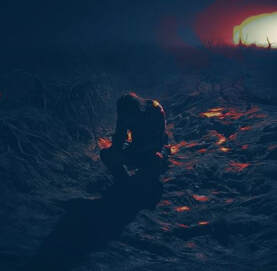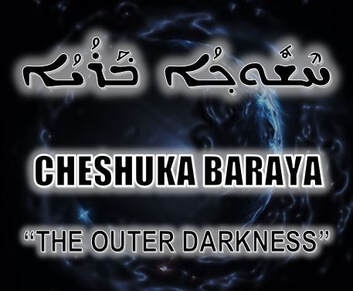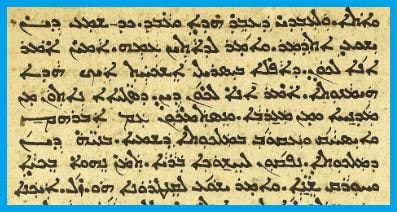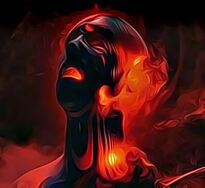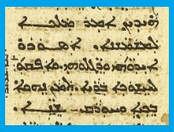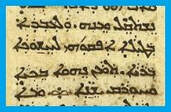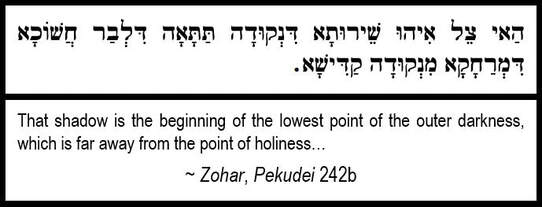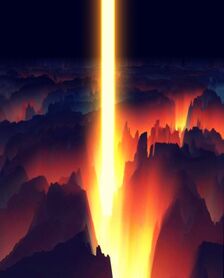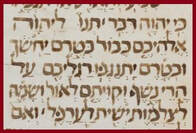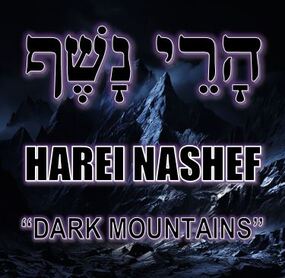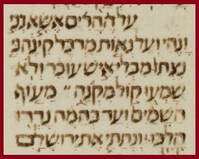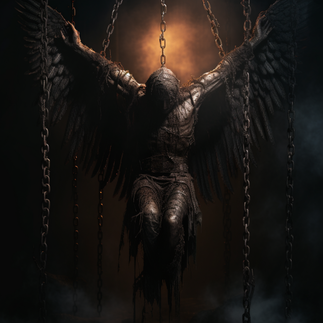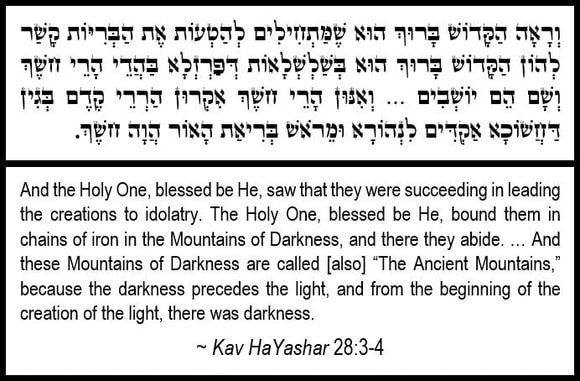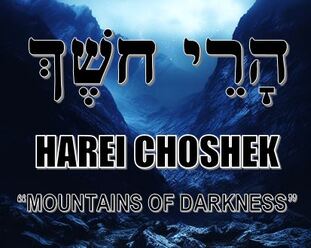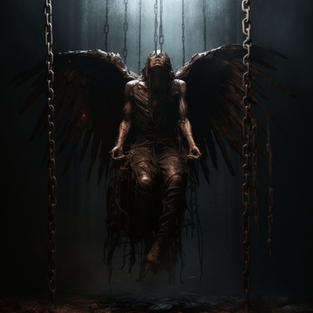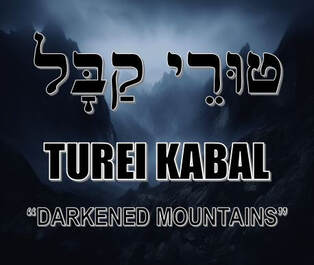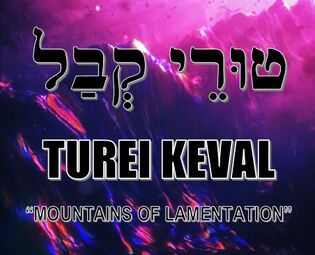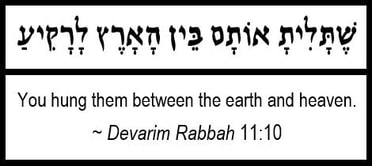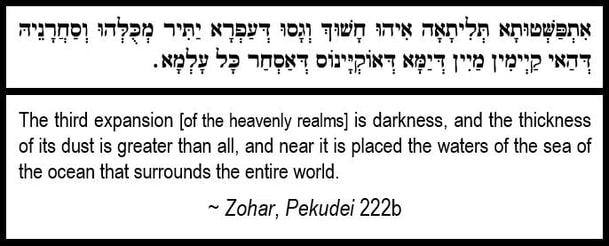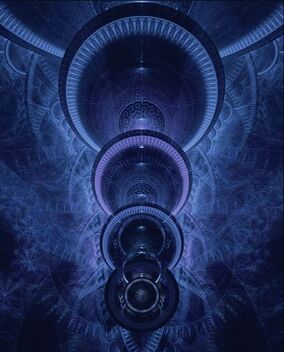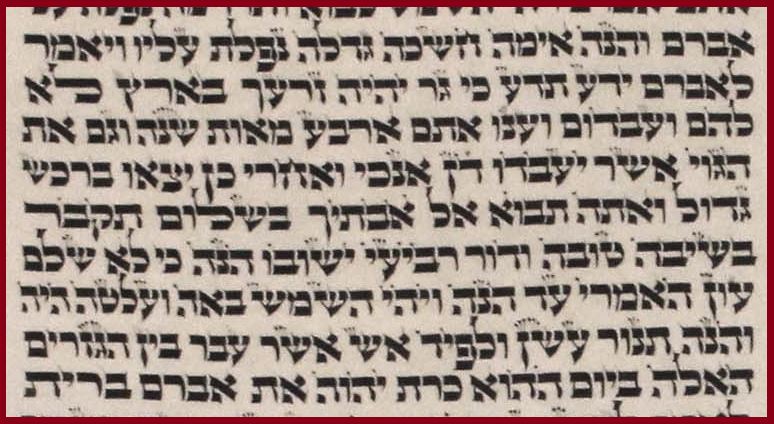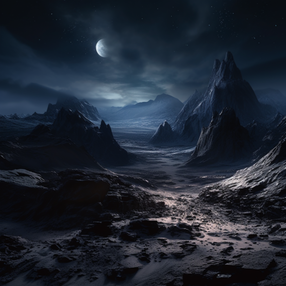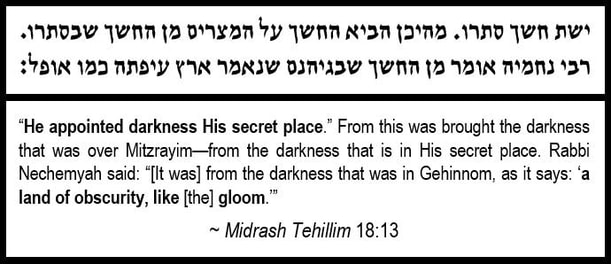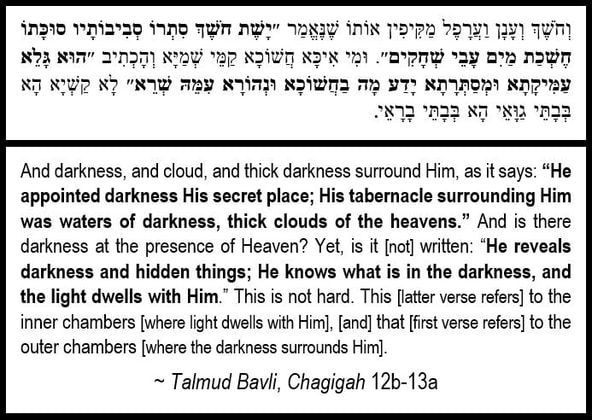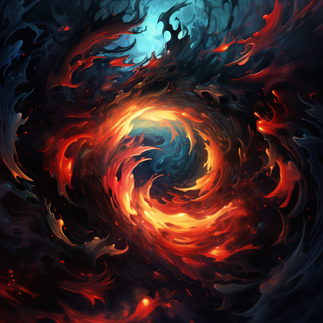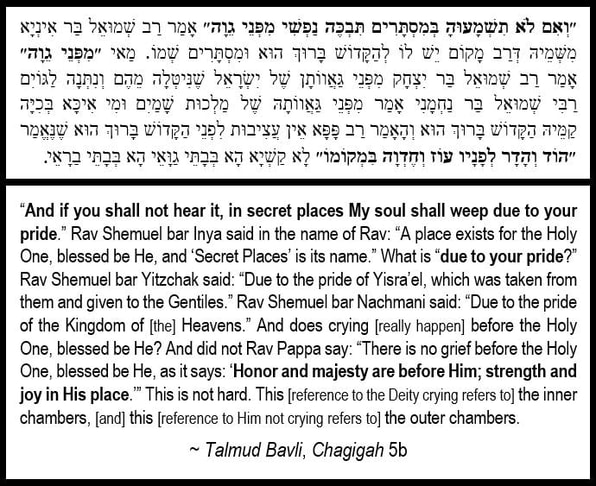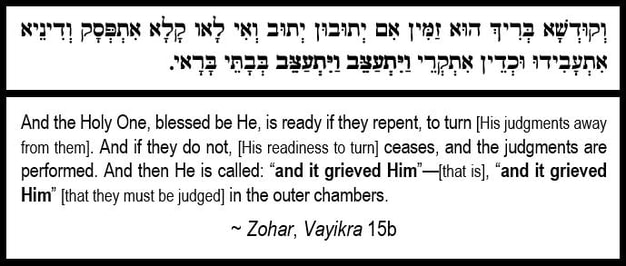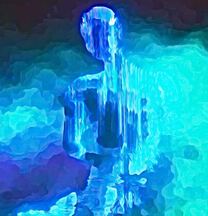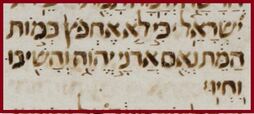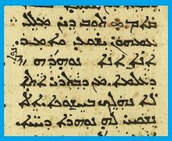THE OUTER DARKNESS
by Jeremy Chance Springfield
11/1/2023
Perhaps no greater uncomfortable subject exists in Scripture than Divine judgment. It is an unsettling thought to consider the reality that our actions will be held accountable by our Maker. Judgment reminds us everything is set in the context of the Creator’s holy standards. Our thoughts, words, and actions shall be weighted on a righteous scale.
Sin coaxes us to shrug off the implications of our imperfections, obscuring the inevitable assessing of the liabilities we have accrued over our days. But such an exemption from consequence is not a grace afforded us. A reckoning awaits every wrong. For this reason, Scripture devotes many words to the topic to emphasize that the judgment of the Most High lacks nothing. It considers everything without omission. Within His sanctioned mercy we have hope, but without it, the consequences are a certainty.
Sin coaxes us to shrug off the implications of our imperfections, obscuring the inevitable assessing of the liabilities we have accrued over our days. But such an exemption from consequence is not a grace afforded us. A reckoning awaits every wrong. For this reason, Scripture devotes many words to the topic to emphasize that the judgment of the Most High lacks nothing. It considers everything without omission. Within His sanctioned mercy we have hope, but without it, the consequences are a certainty.
|
In the pages of the New Testament, when we look at the ministry of the Messiah, we find Yeshua addresses this layered, complex meting out of justice chronicled in various accounts. Among those scattered treatments about the spiritual situation facing all mankind is the unique mention of a very specific type of consequence for sinners receiving the sentence of divine judgment. This special judgment is that which He referred to as "the outer darkness." It is an ominous sounding concept, to be sure, and its reality is terrifying.
|
In the Aramaic of the Peshitta New testament, the phrase is: CHESHUKA BARAYA “the outer darkness.” This cryptic phrase is never used prior to this in Scripture, and so encountering it in the flow of Messiah’s teachings on judgment can be mystifying.
What kind of Divine judgment does Yeshua mean by “the outer darkness?”
Scripture presents the possibility of a heavenly reward or a hellish punishment in Gehenna, but the concept of “the outer darkness” is not clearly defined.
Its enigmatic essence may sound terrifying and isolating, but the concept of “the outer darkness” itself is something found within the boundaries of the Word. This study will shine a light into the topic of “the outer darkness” and help us to see the distinctions of divine judgment in a clearly defined way from Hebrew Scripture and other Jewish texts interpreting the nuances of the Word. Through all of this we will realize that even in the uncomfortable and unpleasant subject of judgment, an abounding mercy is offered to mankind.
Scripture presents the possibility of a heavenly reward or a hellish punishment in Gehenna, but the concept of “the outer darkness” is not clearly defined.
Its enigmatic essence may sound terrifying and isolating, but the concept of “the outer darkness” itself is something found within the boundaries of the Word. This study will shine a light into the topic of “the outer darkness” and help us to see the distinctions of divine judgment in a clearly defined way from Hebrew Scripture and other Jewish texts interpreting the nuances of the Word. Through all of this we will realize that even in the uncomfortable and unpleasant subject of judgment, an abounding mercy is offered to mankind.
Yeshua presents the topic of “the outer darkness” only three times.
The first time He mentions it, the context concerns a believing Roman centurion who was uncharacteristically generous to the Jewish people. The astounding level of faith shown by the Gentile believer caused Yeshua to declare a scandalous statement recorded in Matthew 8:10-12 that very much sets on its head the expected situation regarding the chosen faithful and the idolatrous Gentiles.
The first time He mentions it, the context concerns a believing Roman centurion who was uncharacteristically generous to the Jewish people. The astounding level of faith shown by the Gentile believer caused Yeshua to declare a scandalous statement recorded in Matthew 8:10-12 that very much sets on its head the expected situation regarding the chosen faithful and the idolatrous Gentiles.
10 But when Yeshua heard, he marveled, and said to those with him, “Amen! I say to you that not even in Eesra’El have I found trust as this!
This context of future reward being opened broadly to those usually seen as outside the Divine covenants, while unexpected judgment is meted out to those within the covenants would have been startling claim for anyone within earshot of Yeshua’s words. Exactly what this “outer darkness” entailed is not elaborated upon beyond the “weeping and grinding of teeth” occurring there. The obvious sense is by no means a pleasant one.
Two other times Yeshua mentions “the outer darkness” within the context of a parable. The language of parable is never to be interpreted literally but speaks to a more profound application we need to understand.
The first passage where the phrase is presented in parable format:
The first passage where the phrase is presented in parable format:
The context for this statement is a parable about a banquet and an uninvited guest who is removed from the festivities.
The second passage where the phrase is presented in parable format:
The second passage where the phrase is presented in parable format:
The context for this statement is a parable about a servant who did nothing positive or negative with the talent lent to him by his master.
The fact that Yeshua first sets the phrase in a real spiritual context and then also presents it twice in the perspective of a parable shows us that the notion is not only symbolic but refers to an actual judgment that can await mankind. To better understand the concept, however, let us look at Scripture and how the phrase “the outer darkness” came from scattered references to judgment and isolation from the Most High. The book of Job in particular preserves several sentiments about the darkness involved in the judgment of the wicked, as the following passages display.
In Job 10:21-22, we find the tortured man speaking of a place beyond this life that has a primary descriptor of darkness.
In Job 10:21-22, we find the tortured man speaking of a place beyond this life that has a primary descriptor of darkness.
21 Before I go and shall not return—unto [the] land of darkness and death’s shadow;
Job’s misery bemoans that he will inevitably end up in the afterlife in a place where darkness reigns. We read later in Job 15:30, in the words of his friend Eliphaz, that the wicked will remain in such a place with no hope of return.
This abode of shadow is not explained further in the passage, but we do see the topic is elaborated upon in the Zohar, Pekudei 242b.
The Zohar affirms the reality of “the outer darkness” was a recognized concept in Judaism for a location far removed from any sense of holiness. It is amazing that the only other witness to Yeshua's use of the phrase is the incredibly symbolic text of the Zohar. This corroborating detail means that although the Presence of the Creator interpenetrates all existence, for those undergoing this dark punishment, He will seem as distant as possible.
Ironically, this notion is expressed by the wicked, as suggested by Eliphaz later in Job 22:12-13.
Ironically, this notion is expressed by the wicked, as suggested by Eliphaz later in Job 22:12-13.
13 Yet, you say: ‘How does the Deity know? Shall He judge through [the] thick darkness?’
The wicked assume that the great gulf of darkness that exists between the heights of the heavens and this present realm provides a cover for their sins to be performed without fear of Divine judgment.
This is obviously a misplaced perspective to hold, for all is seen and will be assessed in righteousness. For this reason we must repent of our sins before judgment of darkness comes upon us, as explained in Jeremiah 13:16.
The prophet admonishes us to turn back before it is too late. Divine judgment will come in degrees for all who persist in sin, and in that meting out of justice for our rebellion, we will stumble upon what the text says are HAREI NASHEF “dark mountains.”
These mountains are not immediately identifiable in Scripture, but the implication is of a terrifying situation of isolation and loss. The context is not literal, but spiritual.
It is for those who refuse to repent and are so judged that the sentiment in Jeremiah 9:9 (10 in most English versions) is uttered.
It is for those who refuse to repent and are so judged that the sentiment in Jeremiah 9:9 (10 in most English versions) is uttered.
Our rebellions offend our Creator to tears. Judgment of “the outer darkness,” or to the “dark mountains” is a harsh decree for a soul, to be sure, but the Holy One will not be prevented from holding His creations accountable for continued wickedness.
The text of 2nd Peter 2:4 acknowledges this by referring to the dark sentence already given to certain angels who await their final judgment.
The text of 2nd Peter 2:4 acknowledges this by referring to the dark sentence already given to certain angels who await their final judgment.
These same individuals are also referenced briefly in Jude 1:6.
Notice that both passages mention the detail of these angels being bound by “chains” and held in “gloom.” Their identity is not the same as those who originally rebelled to follow Satan. Rather, their sin was sexual in nature, and refers to those who are mentioned in Genesis 6:1-2.
2 then the Sons of the Deity saw the daughters of mankind, for they were beautiful. These then took for themselves wives from any whom they chose.
These angels fell during the time-frame of the pre-Flood world by not resisting the allure of human beauty like they assumed they could, and their subsequent sinful choices meant they were destined in their error to promote further sin. For this they would be judged.
This situation is confirmed about those angels in the text of Kav HaYashar 28:3-4, which also provides an additional recognizable detail.
Here we see that these angels are in a place referred to in the Hebrew as HAREI CHOSHEK “Mountains of Darkness.”
This describes a place that predates the formation of the physical universe—a spiritual abode set aside for judgment. It is in that special realm they await their end. The “Mountains of Darkness” are the same as the “Dark Mountains” mentioned previously in Jeremiah 13:16 as a place of judgment.
In the text of the Havdalah of Rabbi Akiva, we see that these angels were not just enchained, but arranged in a certain manner in that place.
In the text of the Havdalah of Rabbi Akiva, we see that these angels were not just enchained, but arranged in a certain manner in that place.
The detail here reveals they are enchained by their nostrils. Scripture uses the imagery of having one’s nostrils pierced and led by such several times as a graphic way to say the individual will be at the complete mercy of the one doing that to them. These angels, who thought they were in control of themselves, but who found they were no better than the humans they decried, are now judged with a total loss of control by being enchained through their nostrils to await final judgment.
The text also refers to the place of their holding in the Aramaic by the phrase TUREI KABAL “Darkened Mountains.”
However, if it is instead pronounced as TUREI KEVAL, it means “Mountains of Lamentation.”
This feature of the term brings to mind Yeshua's proclamation that in “the outer darkness” there will be weeping and gnashing of teeth--terms indicating lamentation.
The text of Devarim Rabbah 11:10 explains where these dark mountains of sadness are at in which those angels were hung.
The text of Devarim Rabbah 11:10 explains where these dark mountains of sadness are at in which those angels were hung.
This detail of “the outer darkness” being not in the heavens but also not on earth connects to the concept of it existing in a realm beyond them. This makes for an odd situation.
If you are not in the heavens, and you are not in the earth, then where are you?
In Job 18:18, recording the words of his friend Bildad about the destiny of the wicked, it is also suggested this place of darkness is outside of this physical realm.
If you are not in the heavens, and you are not in the earth, then where are you?
In Job 18:18, recording the words of his friend Bildad about the destiny of the wicked, it is also suggested this place of darkness is outside of this physical realm.
From this detail we can surmise it is a place with a boundary of some type. This would accord with the notion that “the outer darkness” is beyond the boundary of somewhere else. It should be a given, of course, being that an “outer” implies an “inner” place somewhere. This shows that the Creator determined the borders of “the outer darkness.”
In fact, in the Zohar, Pekudei 222b, it speaks of the spiritual realms that exist simultaneously in a superimposition with the physical reality we experience—centered on the Temple Mount itself and moving outwards—and describes the outermost of those realms with important details.
This information supports the notion that “the outer darkness” is beyond the dimension of this physical reality but not precisely in the heavenly realms, either. It lay in a place that is linked in some spiritual manner but is still inherently isolated from all other worlds.
What may be truly surprising, however, is the idea of darkness being linked to the Presence of the Holy One! This strange detail is a repeated declaration in Hebrew Scripture, first seen explicitly in the giving of the Torah in Exodus 20:21.
The supernal dark concealed the Presence of the Creator when He came into this realm atop Mount Sinai. The concept is hinted at originally when the Holy One entered into covenant with Abraham, as recorded in Genesis 15:12.
This occurred while Abraham waited for the Holy One to show up to affirm the covenant. It is only when this supernatural darkness fell on Abraham that the Creator began to speak, as we see in Genesis 15:13-17.
13 And He said to Avram, “Certainly know that your seed shall be a sojourner in a land not theirs, and shall serve them, and they shall afflict them four hundred years.
|
14 And even that nation which they shall serve I shall judge. And after such, they shall go forth with great possession.
15 And you shall go unto your fathers in peace, to be buried in a good old age. 16 But [in] the fourth generation they shall return here, for the wickedness of the Amori is not yet full here.” |
17 And when the sun went, and it was dark, then see! a smoking furnace, and a torch of fire, which passed between those pieces!
Notice that the main topic of the Creator’s words in this event is that of judgment, and it all occurred when a supernatural darkness fell over Abraham. Darkness is thus something intricately linked to the judgment of the Holy One.
The text of Midrash Tehillim 18:13 provides more clarity on the situation.
The Creator is the Source of all existence, of course, and He delineates how it is ordered. Quoting from Psalm 18:12 (11 in most English versions), we find that from His “secret place” came darkness, and that darkness was ultimately given to the realm of Gehenna / Gehinnom, quoting also from Job 10:22.
This linking of the darkness to Gehenna allows us to properly place the location of "the outer darkness." It is not precisely Gehenna, but it is close. This means it is a different level or grade of judgment than the straightforward judgment in Gehenna. This is clarified further in the text of the Talmud Bavli, Chagigah 12b-13a, which quotes again from Psalm 18:12, and Daniel 2:22.
This linking of the darkness to Gehenna allows us to properly place the location of "the outer darkness." It is not precisely Gehenna, but it is close. This means it is a different level or grade of judgment than the straightforward judgment in Gehenna. This is clarified further in the text of the Talmud Bavli, Chagigah 12b-13a, which quotes again from Psalm 18:12, and Daniel 2:22.
In this revealing passage is seen the concept of “darkness” and an “inner” and “outer” chamber connected to the thought. It is questioned how darkness can be near the Holy One when Scripture also speaks of light dwelling with Him. The explanation involves an “inner” and “outer” chamber where light and darkness exist in relation to Him, respectively.
It is vital that we do not miss this important clarification, for this is addressed in further detail also in the Talmud Bavli, Chagigah 5b, where it discusses the idea that the Holy One is pained by those who refuse to repent, as quoting from Jeremiah 13:17 and 1st Chronicles 16:27.
All this connects to what we read earlier in the study from Jeremiah 13:16 and the “dark mountains” upon which a sinner is said to eventually roam. The idea that a person will be subject to such a lonely judgment as “the outer darkness” grieves our Creator, who made mankind so we can experience a relationship with Him that is meaningful and everlasting in the intimacy of His very Presence.
The Most High weeps in isolation in the “inner chamber” so that He can eventually perform judgment in sober, unbiased fashion in the “outer chamber,” where other beings perceive Him and where weeping may occur by those who are found wanting in their sin, as Psalm 9:9 (8 in most English versions) proclaims.
The Most High weeps in isolation in the “inner chamber” so that He can eventually perform judgment in sober, unbiased fashion in the “outer chamber,” where other beings perceive Him and where weeping may occur by those who are found wanting in their sin, as Psalm 9:9 (8 in most English versions) proclaims.
Although man may disagree with the severity of any given judgment, the truth is that the Holy One can be trusted to decide every matter without prejudice, and in reality, He does so with a hope for the best possible outcome. Whatever the case, however, He will make sure that no injustice occurs.
This is explained further in the Zohar, Vayikra 15b, which quotes from Genesis 6:6 concerning the reaction of the Holy One to the sins of the angels and man in the pre-Flood world.
This is explained further in the Zohar, Vayikra 15b, which quotes from Genesis 6:6 concerning the reaction of the Holy One to the sins of the angels and man in the pre-Flood world.
The place judgment occurs is in the outer chambers, where the weeping of the wicked happens—that is, “the outer darkness.” In all of this, however, we must recognize that this willingness to bring a guilty verdict on His creations is not without personal Divine grief. The Creator’s hope is for mankind to repent of our sins and be reconnected to His full Presence without the experience of harsh Divine judgment separating us from Him.
For this reason, we read the words of Ezekiel 18:32.
When all of these matters are explained and understood properly, we can truly appreciate the otherwise cryptic words of Yeshua about “the outer darkness.” It is a place not meant for man, although man’s sin can surely lead him into those shadows. Yeshua’s message was intended to remind us that darkness awaits if we do not repent, but eternal light is prepared for all who turn to the spiritual provision offered by the Holy One in the righteous merit Messiah has won.
This was proclaimed so perfectly in John 8:1 (12 in most English versions).
This was proclaimed so perfectly in John 8:1 (12 in most English versions).
Yeshua serves as the light to lead sinners once again into the welcoming realm of our Creator, where a meaningful everlasting life awaits us. “The outer darkness” is a consequence for our sin if we do not repent and live a life aligned with His purposes.
The serious threat of isolation from our Maker in “the outer darkness” need not be anything man ever experiences if we will commit to allowing the light of heaven to illuminate this world.
All study contents Copyright Jeremy Chance Springfield, except for graphics and images, which are Copyright their respective creators.
